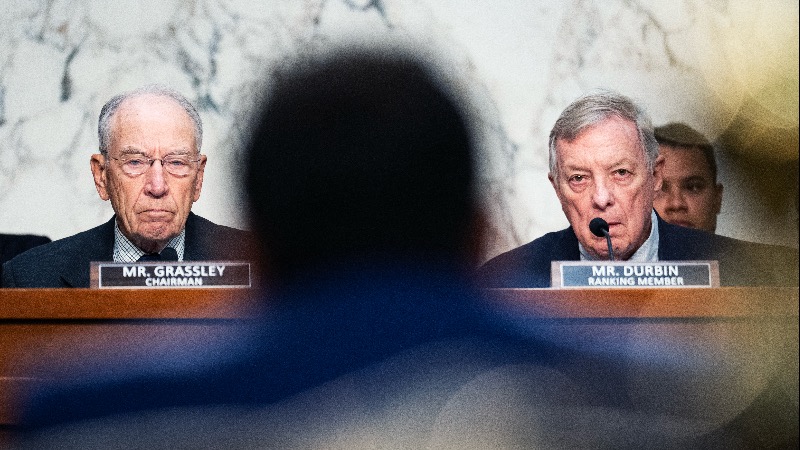
Washington reportedly tried to persuade Tehran to get Houthi rebels to stop their attacks.
US President Joe Biden’s administration reportedly held behind-the-scenes negotiations with Iran to solicit Tehran’s help in pressuring Yemen’s Houthi rebels to halt their attacks on commercial cargo ships in the Red Sea.
The talks were held in January in Oman, the Financial Times reported on Wednesday, citing unidentified US and Iranian officials. Omani officials acted as intermediaries, shuttling between the American and Iranian negotiators so they could communicate without making direct contact with each other.
The Houthi attacks have continued unabated, suggesting that the secret negotiations failed to achieve the desired results. The FT didn’t specify whether Iran rejected the US request or tried unsuccessfully to persuade the rebels to cease their rocket and drone strikes. Iranian leaders have claimed that although Tehran supports the militant group politically, the Houthis act independently.
The rebels have launched dozens of attacks on vessels in the Red Sea and surrounding waters, disrupting shipping traffic through one of the world’s most important maritime corridors. The Houthis and other Iranian-backed militants have targeted US, UK and Israeli interests across the Middle East – in solidarity with the Palestinian people – since the Israel-Hamas war began in October.
READ MORE: First fatalities confirmed in Houthi attacks on Red Sea shipping
The Houthi attacks have continued despite airstrikes against the group by a US-led military coalition. Houthi spokesman Yahya Saree has vowed to “confront the American-British escalation with escalation and will not hesitate to carry out comprehensive and effective military operations in retaliation to any British-American foolishness against beloved Yemen.”
Iran has allegedly sought to avoid escalation of tensions with Washington, discouraging its affiliated militias from further attacks on American military bases in Iraq and Syria after three US troops were killed in a drone strike near the Jordanian-Syrian border in late January. An Iranian official reportedly told the FT that when a key general visited Baghdad last month, he advised Iraqi militias to “manage their behavior in a way that will not allow America to engage Iran.”
US negotiators – led by White House Middle East advisor Brett McGurk and envoy Abram Paley – also express concerns about Iran’s expanding nuclear program, according to the report. Iran was represented by its deputy foreign minister, Ali Bagheri Kani, who is Tehran’s lead nuclear negotiator.
READ MORE: US targeted Iranian warship with cyberattack – NBC
The Biden administration sees indirect communication channels as “a method for raising the full range of threats emanating from Iran,” the FT said. The White House negotiators conveyed to the Iranians “what they need to do in order to prevent a wider conflict, as they claim they want.”
A second round of talks, reportedly scheduled for last month, was delayed because McGurk was focused on trying to help broker a ceasefire in the Israel-Hamas war. The conflict in the Gaza Strip also derailed efforts by the US to negotiate de-escalation measures with Iran, including limitations on the Islamic republic’s uranium enrichment, the FT said.
As World Descends Into Globalist Triggered Cannibalism, Alex Jones Proven Right Again




